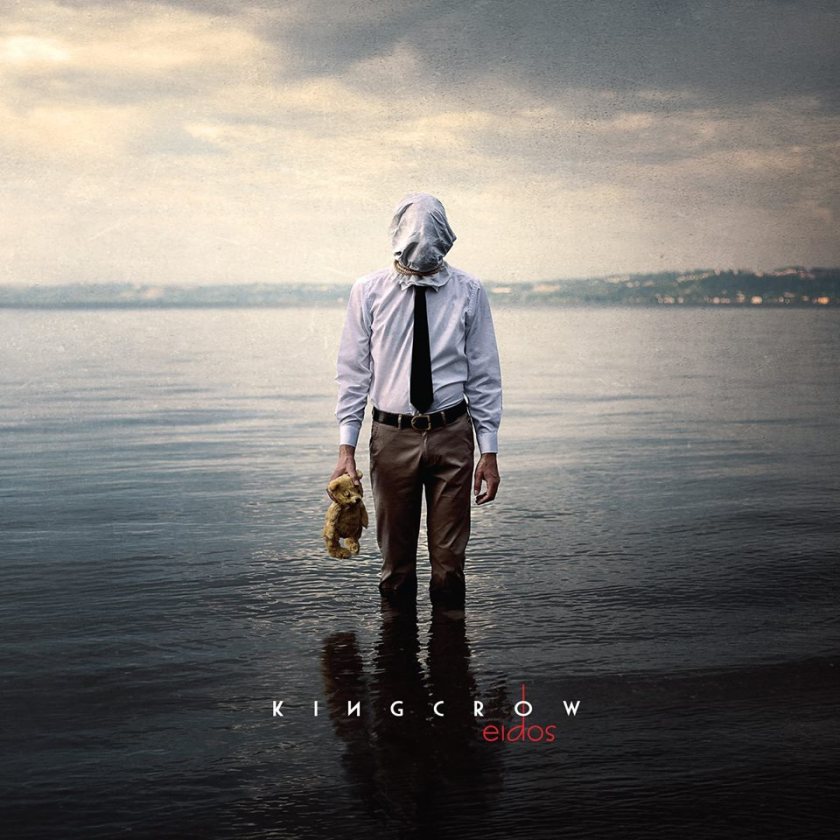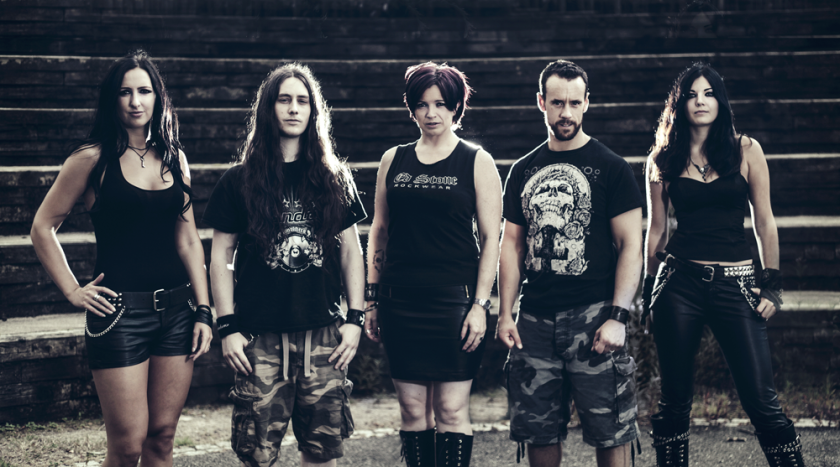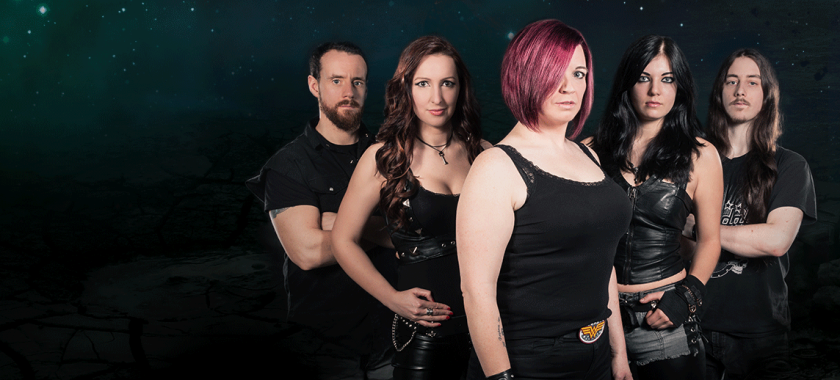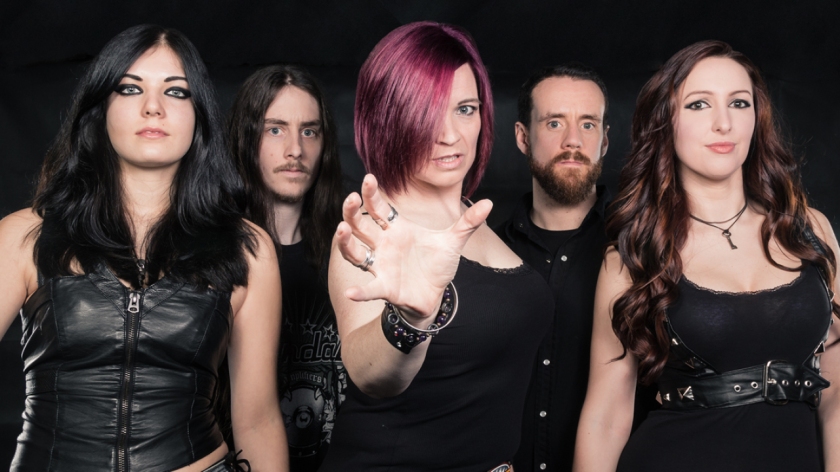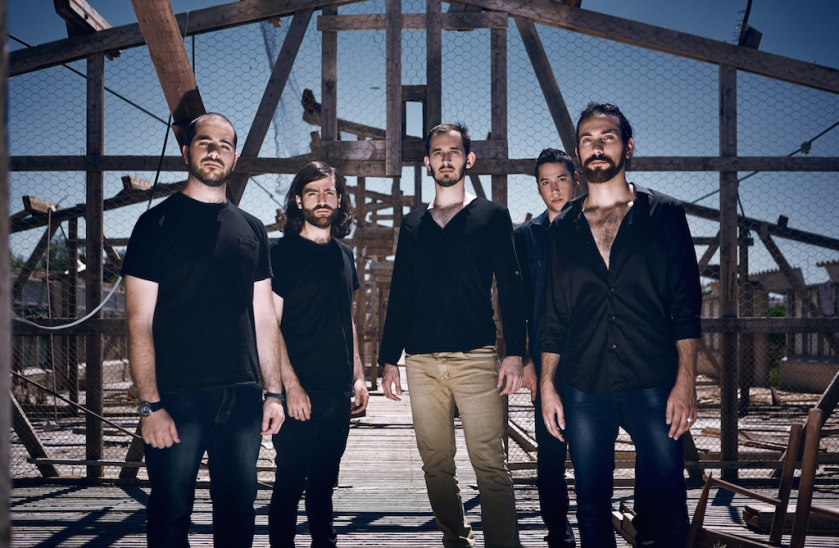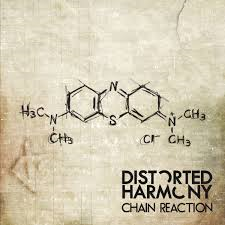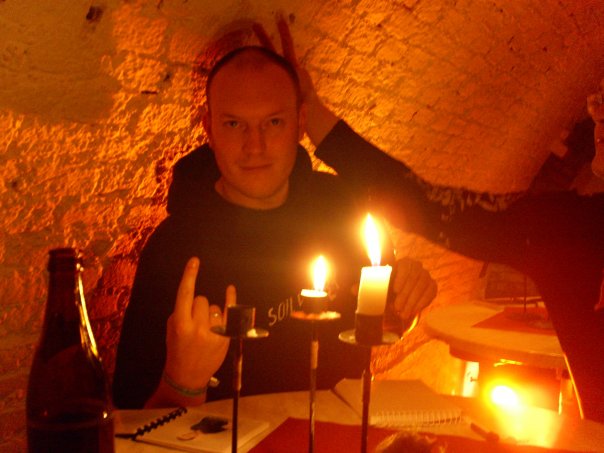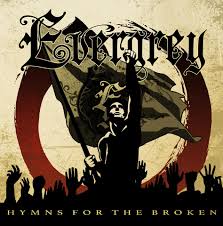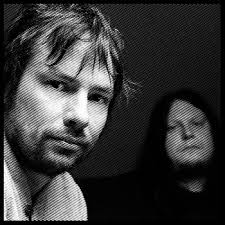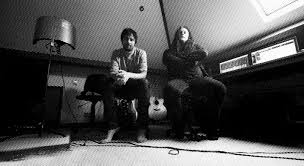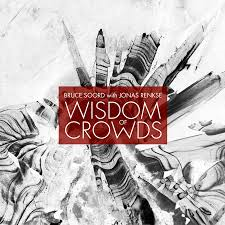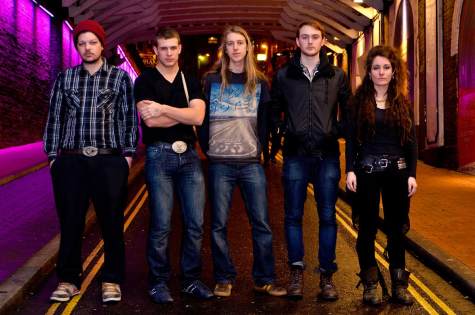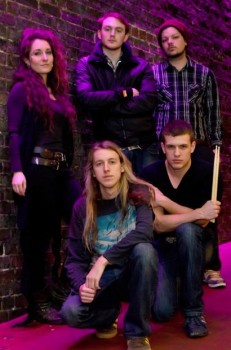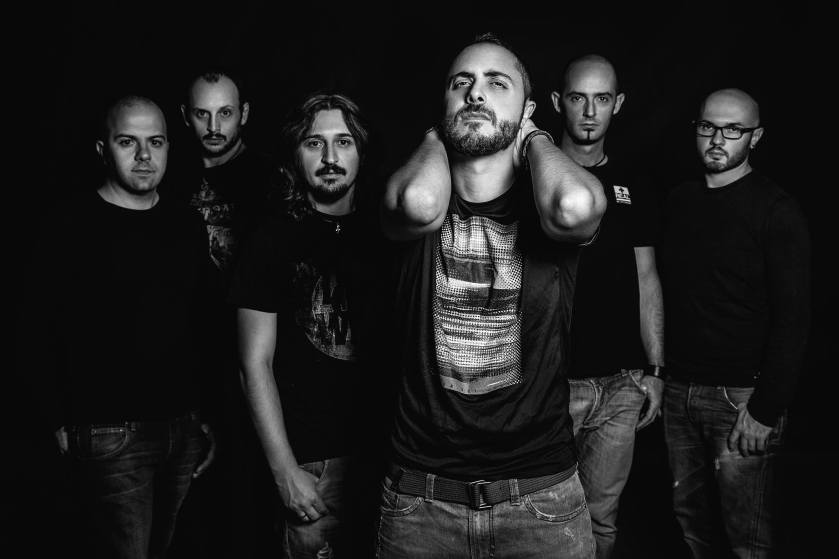
Welcome to Part 2 of my rather mammoth chat with Diego Cafolla, the guitarist and principal song writer with Kingcrow. I’ve said it before and I make no apology for saying it again: Kingcrow are one of the most criminally underrated bands in the progressive metal world. As such, I felt it absolutely necessary to delve as deeply into the Italian’s music as possible and hopefully gather a few new converts along the way. After all, writing about and supporting great bands is what the Blog Of Much Metal is fundamentally about.
If you’ve yet to read Part 1, you can access it here. In Part 1, Diego and I talk about the album title, the artwork and a host of other things before delving headlong into a track-by-track breakdown of ‘Eidos’, Kingcrow’s sixth full-length release.
However, onto Part 2 and it’s here that we pick up on the track-by-track synopsis, beginning with the sixth track on the album, ‘Deeper Divide’. It’s a longer track that features a hefty dose of technicality but also has some gorgeous melodies and plenty of memorable moments. I’m not the only one who likes the song, as Diego admits candidly.
Deeper Divide
“I tell you”, he begins, “this is probably my second favourite track on the record. It is a very deep song which I wrote the lyrics for. It is about someone cutting every connection with his past and going for a completely different life. I wrote it at four in the morning and the atmosphere is there. When I hear it, I can picture myself in the studio writing it at four in the morning. I feel that it is quite a lonely song, but it is quite complex. There is a part after the chorus, if you can call it a chorus, where there is an opening after a dark beginning. A friend told me that it is like a ray of light from a dark sky. I like that change in mood in the song a lot.”
On The Barren Ground
“This is probably the happiest song on the record, I guess”, Diego responds as we move onto ‘On The Barren Ground’, the seventh track on the album. “It was totally re-written because the chorus that you hear on the album was actually the verse on the initial version. It is quite heavy too.”
I agree that it is pretty heavy, but I get an 80s prog rock vibe to the song too. I reluctantly put this to Diego and, surprisingly, he doesn’t necessarily disagree.
“Someone also suggested that it has an 80s pop feel. I don’t know, I wasn’t inspired by 80s pop for the song but I can understand what you mean totally. I think it is the keyboard sounds that remind people of 80s pop. But I like the song because it’s a punchy track, quite technical and the opening riff is probably one of the heaviest parts by our band. It wasn’t deliberate, it just happened that way; it wasn’t like I thought ‘right, now I have to write something with balls’”, Diego laughs riotously before reverting back to his self-deprecating norm. “But I like the track and it is what it is.”
At The Same Pace
When I first heard ‘Eidos’, I immediately took a couple of the songs to my heart. ‘At The Same Pace’ was not one of those tracks. However, over time, it has crept into my psyche almost under the radar and it is now a firm favourite with me. I let Diego enlighten me about this rather wonderful piece of music.
“I agree that it is one of the best songs on the record”, Diego begins matter-of-factly. “The lyrics are written by Diego Marchesi and they are very personal, so I prefer not to talk about them for this song. But musically, it was easy to write and what I like about the song is that it is quite long but it feels short. It’s not like ‘ah, I’ve been listening to this song for ages’ which is nice. The only part that I changed totally that wasn’t on the original script was the atmospheric breakdown in the middle.”
Ah, the breakdown. After a few minutes of steady building, the track metaphorically jumps off a cliff face and plunges into an atmospheric and emotional abyss of rich beauty. The combination of acoustic guitars, powerful piano and soulful guitar solos gives me goose bumps every time.
“Thank you, it is a solo which I really love. But for me, there is a fantastic bass line by Francesco (D’Errico) and yeah, I dunno, it’s one of those songs that worked from the beginning. It’s a favourite song for me on the record.”
“The bass line”, Diego obliges when I ask him to elaborate on the bass work he mentions, “has this kind of funky rhythm, and Francesco is a great bass player. A lot of the beauty of the song comes from the bass work. It’s something that a lot of people don’t focus on but I can tell you that without the bass, the song loses a lot of its beauty for sure. Francesco shines more than ever on this record I believe.”
https://soundcloud.com/ken-golden-1/08-kingcrow-at-the-same-pace-1
Eidos
The penultimate track is both the longest song and the title track. It’s a genuine monster that offers a great deal of variety throughout its extended life span. As I discover, ‘Eidos’ was not a composition that easily rolled off the production line.
“That one was the hardest song to write”, Diego offers bluntly. “I spent like a month writing it because it is quite complex. It has a lot of switches between heavy and melodic and because I always want to make the songs sound smooth, I had to put a lot of extra work into it. Also the vocal melodies I like too. It is probably the hardest song to dig at first because it changes a lot. It starts quite heavy but it has this acoustic verse and builds towards the end. The end section is quite heavy too. We haven’t rehearsed it yet but I think it will be a hard song to put down live.”
Without seeking to derail the track-by-track rundown, I note to Diego that a theme has begun to develop with Kingcrow, namely the combination of heavy metal and acoustic guitars which creates a nice balance and something akin to a ‘unique selling point’ the band. Diego agrees and explains why this is.
“I have been thinking about this and I think it has become a little bit of a trademark with Kingcrow. It happens a lot and simply, I like the sound of the acoustic guitar. I like it even when they are combined with very crunchy guitars; I like that sound. It all gives you this lush feel and I think it will be there forever with Kingcrow I guess.”
If Only
Earlier in the conversation, Diego confessed his love for ‘If Only’, the closing track on ‘Eidos’. I finally offer him the floor and invite him to put his love of this composition into words.
“It is a very complex song”, he begins, “that contains polyrhythms for example. But it’s not because it is complex that I like it; it’s the emotion of the song. I have this image in my head of two people lying in the bedroom; an old couple. One of them is thinking about passing their life with this person and questioning themselves about that. I just imagined the light of the moon through the window and this was the initial image I had. When I write, I write in a very visual way. I try to make soundtracks to images and this was the image for ‘If Only’. It wasn’t very difficult to write but I just love the feeling to it. There’s what I call the chorus even if it doesn’t repeat; there’s this opening and every time I listen to it, I love it and feel that it is very good.”
One strength of ‘If Only’ that hasn’t yet been mentioned yet, is the vocals. Diego Marchesi’s voice is fantastic throughout ‘Eidos’ but is, in my opinion, outstanding within ‘If Only’. Diego is quick to agree.
Again, it was almost a first take I think. Diego started to sing and I thought ‘ok, this is perfect. No work needed here’. He just nailed it first time, it was amazing. He has a great way of channelling emotions through his voice. People tend to focus more on technical aspects or the screaming, high pitched notes. He has the ability to do this, I can assure you. But he just focuses a lot on delivering a performance that links with what the song is all about. We all just let the music go where it wants to go. It’s not our forte to show off. We can play but we’re not shredders or anything. So it is better for us to focus on other aspects of the music, like the arrangements, expressing emotion and a subtle sophistication in the playing.”
And there you have it. All ten songs explored and explained from the band’s perspective.
In my previous interview with Diego some months ago, he offered me a great soundbite, describing ‘Eidos’ as a ‘sonic adventure’. Naturally, I ask him whether he still stands by this description.
“Yeah, I stand by that”, he retorts vehemently. “There are a lot of different sounds, styles and arrangements on this record. I feel that it is a very rich record and that’s why it will probably take some time to dig some of the songs. There are a lot of things going on and it’s not like a record where once you hear the first track, it sets the tone for the whole record. There is a lot more to discover during the life of the record.”
From a personal perspective, I like the fact that the technicality never threatens to overshadow the music and at its heart, ‘Eidos’ is a beautiful record with a great smooth flow to it. The result is an album that I want to go back to again and again.
“We work in that sense and try to make everything smooth”, Diego replies appreciatively. “We constantly play in odd time signatures but if we feel that something sounds too angular, we try to prevent this. I have this joke that we make ‘prog for dummies’ because we have the sophistication to use polyrhythms and odd time signatures but we try to make everything as smooth as possible.”
I laughingly refer to my love of cricket at this point. I love the fact that I’m in a small minority who really understands the rules of the game. The same could be said for Kingcrow; it’s that thrill of being in on a secret. In my case, I understand the rules of the game, for Kingcrow, it’s knowing how technical the music is. I think the cricket analogy is lost on Diego, but he apparently concurs with what I’m trying to say.
“We are rehearsing some songs now and this material is the most technical we’ve ever written, hands down. Nothing on ‘In Crescendo’ or ‘Phlegethon’, is as complicated to play as on ‘Eidos’.
‘Yeah, a bit, yeah”, Diego laughs with real warmth when I ask if he regrets the material being so complex. “I was talking with Ivan (Nastasi) the other guitar player and he said to me ‘man, why did you do that? Nobody will recognise this, so why did you do it?’ It is extra work for everyone but it is very satisfying when you can play a song very well on stage and you, and only you, know how complex it actually is.”
With any band, the big question is whether they honestly think that the new album will be the one to propel them to the next level or beyond, garnering new fans in the process.
“I hope so”, comes the standard reply, although crucially, I get the feeling Diego really believes that this could be their moment. “I think it is a strong record and I hope that it will bring some more recognition for us. I don’t want to sound pretentious but I think that we are a good band. We work hard a lot and the hope is always there. We hope that people will stick with it and think that we are a good band.”
Realising that the interview began over an hour ago, I feel compelled to wrap things up. It’s not like I have two young children to look after or other adult responsibilities to attend to…oh, wait, yes I do. In that case, I close the interview which has felt more like two friends having a natter, by asking about future touring plans. And, seeing as I’m based in the UK, I’m specifically interested to find out whether we’ll see Kingcrow on these shores again soon.
“Yeah absolutely, we will take ‘Eidos’ onto the stage. But since it is now the summer, I think that we will do something in the fall. We don’t have anything booked yet but our management is working on it right now. I’m sure something will come up for around October or something like that. For sure we’ll do a show in Rome which will be the first one, because we always do that. I’m not sure about the States or North America, but probably Europe will be our main focus. The reaction we had in the UK was quite good, particularly because it was our first international show. It was really new for us, but we have great memories and the reaction was really good. I hope we will come back to England soon, but it depends because it is quite expensive to get there.”
‘Eidos’ is out on Sensory Records on June 23rd 2015.
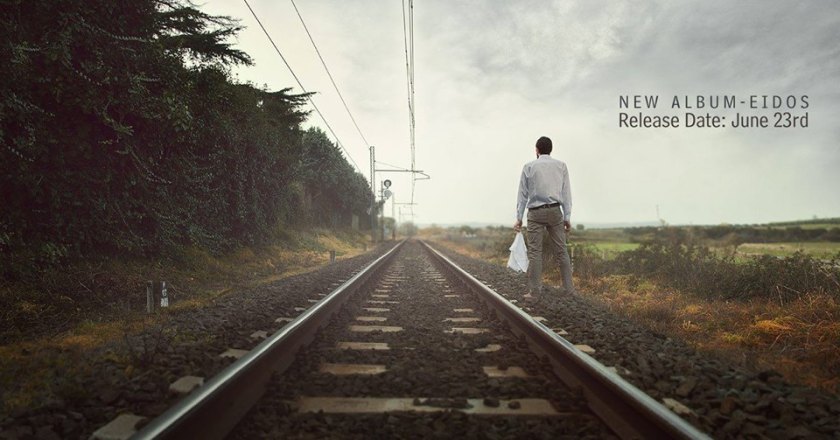
If you’ve enjoyed this interview, please check out some others that I have conducted:
Kingcrow – ‘Eidos’ Track-by-Track Part 1TriaxisNative Construct
Distorted Harmony
Kingcrow
Wisdom Of Crowds – Bruce Soord & Jonas Renkse
Maschine


